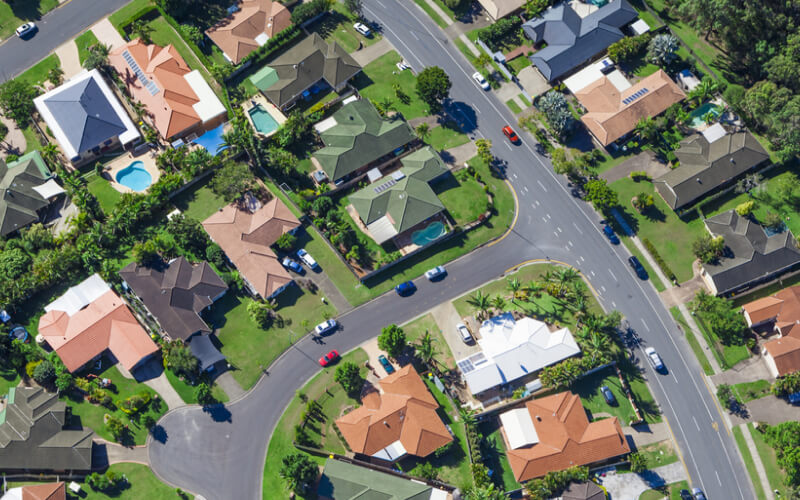Not many Australians get excited about tax time … unless they’re fortunate enough to be a property investor. That’s because Australian property investors have access to a range of various tax deductions and tax benefits, which can help reduce their taxable income. However, not all expenses related to rental properties are deductible.
The Australian Taxation Office categorises rental expenses into three types:
- Those that cannot be claimed
- Those that can be claimed as immediate deductions
- Those that can be claimed over a number of years.
Immediate deductions are expenses that can be claimed in the same income year that they were incurred. These include bank charges, body corporate fees, council rates, insurance, advertising costs for tenants, and interest charges on loans if the property is being rented or is available for rent.
It’s important to note that not all expenses related to your rental property can be claimed as deductions. So – what can be deducted? And importantly, can you claim conveyancing expenses? Let’s find out.
Immediate Investment Property Tax Deductions
Here are the items you can claim as immediate deductions against your rental income for this year (not a comprehensive list).
- Property management and maintenance expenses
- Advertising for tenants (directly or through an agent)
- Body corporate or strata fees and charges
- Cleaning, gardening, lawn mowing, pest control, security patrol fees
- Rates and taxes (water, council, land tax)
- Property agent fees and commissions, postage, stationery, bank charges
- Lease document expenses, letting fees, administration expenses
- Legal expenses for debt collection or tenant issues
- Electricity and gas not covered by tenants
- Insurance (landlords, building, contents, public liability)
Long-Term Deductions
Below are some deductions you can make over the long-term in Australia (keep in mind this is not a comprehensive list).
- Borrowing expenses, including loan application fee, lenders legal fees, title search fees, lenders mortgage insurance, stamp duty on mortgage, and mortgage registration fees. If the loan is less than five years, expenses are deductible over the period of the loan; otherwise, they are deductible over five years.
Depreciation/Depreciating Assets:
- Equipment, like hot water systems and air conditioners, can be depreciated and are considered part of the cost of the system.
- Building construction can also be depreciated and is called a Capital Works deduction.
- Assets, such as a dining table and chairs, are to be depreciated in accordance with their effective life.
- Items under $300 cannot be separately deducted.
Not Deductible
The following expenses are NOT deductible or considered capital or private in nature by the ATO:
- Purchase price (forms part of Cost Base reducing Capital gain on sale)
- Stamp duty on purchase
- Legal fees
- Pest & Property inspection
- Sourcing Fee
- Renovation during ownership period
- Renovations immediately after purchase
- Repairs immediately after purchase
- Legal/conveyancing on sale of property
- Advertising on sale of property
- Agent fees on sale of property
- Pre-purchase expenses (especially if property was not purchased)
- Attending seminars to acquire more property
- Cost of reports on property prior to purchase
- Travel to inspect property prior to purchase
- Expenses when the property was not available for rent
- Cost of improvements or renovations can only be depreciated over 40 years at 2.5% p.a.
Can You Claim Conveyancing Expenses?
If you’re renting out an investment property, you may be wondering which expenses related to legal costs and lease documents are tax deductible. According to the Australian Taxation Office (ATO), you can immediately claim some of these expenses as deductions, as long as they were incurred during the rental process.
However, it’s important to note that conveyancing fees and other costs related to the transfer of the property cannot be claimed as deductions. These expenses are considered to be part of the purchase and sale process of your property, and therefore fall under the category of ‘capital costs’, which are not deductible.
But don’t worry, all hope is not lost!
Instead of being able to claim an immediate deduction, your conveyancing costs will become part of the cost base of your property. This will come in handy when it’s time to pay capital gains tax upon the sale of your investment, as any money you’ve spent on conveyancing can be used to reduce your tax liability.
It’s worth remembering as well that legal expenses related to the management of your property are a different story. Running costs are considered to be those incurred to maintain the property, and as such, legal expenses associated with the lease would be considered a running cost and can be claimed as a deduction against the rental income you receive.
At the end of the day, it’s always a good idea to seek advice from a tax professional or consult the ATO to ensure that you’re claiming the right deductions and making the most out of your investment property.
Investment Property Tax Deduction FAQs
- What is a rental property and how is it different from other types of properties? A rental property is a property that is owned by an individual or entity and is rented out to tenants for a specified period. This type of property is different from other types of properties, such as a main residence or a vacation home, as its primary purpose is to generate rental income.
- What tax deductions can be claimed for an investment property? There are several tax deductions that can be claimed for an investment property, including borrowing expenses, council rates, depreciation, legal expenses, property management fees, repairs and maintenance costs, and body corporate fees.
- How is capital gains tax calculated for an investment property? Capital gains tax (cgt) is calculated on the profit that is made when an investment property is sold. To calculate capital gains tax, you need to subtract the cost base from the sale price, and then apply the applicable tax rate based on the number of years the property was owned.
- What is conveyancing and how does it relate to investment properties? Conveyancing is the legal process of transferring the ownership of a property from one party to another. When buying or selling an investment property, conveyancing fees will be incurred, and these fees can be claimed as a tax deduction.
- How does negative gearing work in relation to investment properties? Negative gearing is a strategy that property investors use to offset the costs associated with owning an investment property against their taxable income. This strategy involves borrowing money to purchase the property and using the rental income to cover the loan repayments and other expenses associated with the property.
- Can lawn mowing and water rates be claimed as tax deductions for a rental property?
Yes, lawn mowing and water rates can be claimed as tax deductions for a rental property. These expenses are considered part of the cost of maintaining the property and can be claimed as such on the owner’s tax return.
- How do property owners determine the effective life of a depreciating asset?
The effective life of a depreciating asset is determined by the ATO based on guidelines provided in their tax legislation. Property owners can use a quantity surveyor to provide a report that details the assets that are eligible for depreciation and the estimated effective life of each asset.
Get a free conveyancing quote
Obligation free quote for home and land conveyancing
Read More












